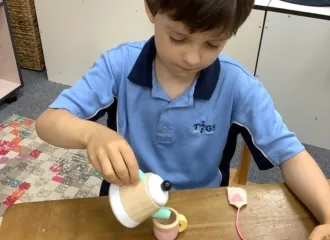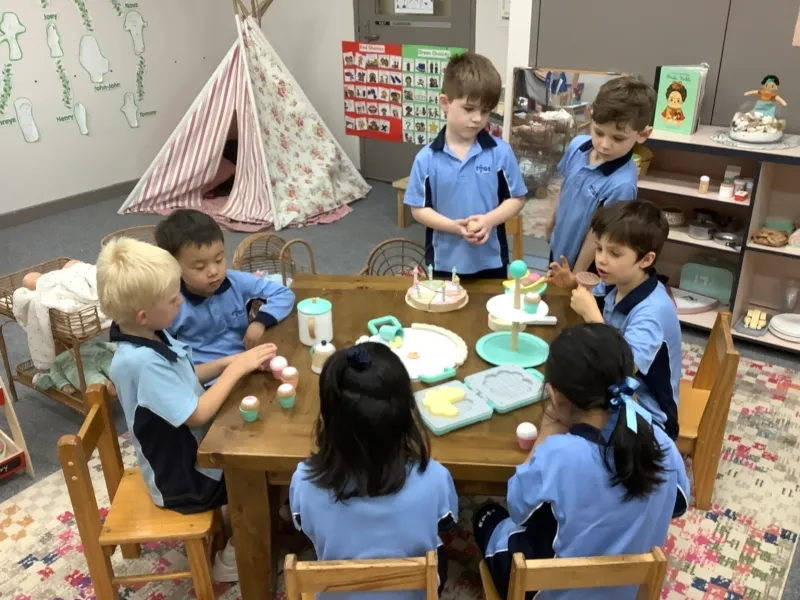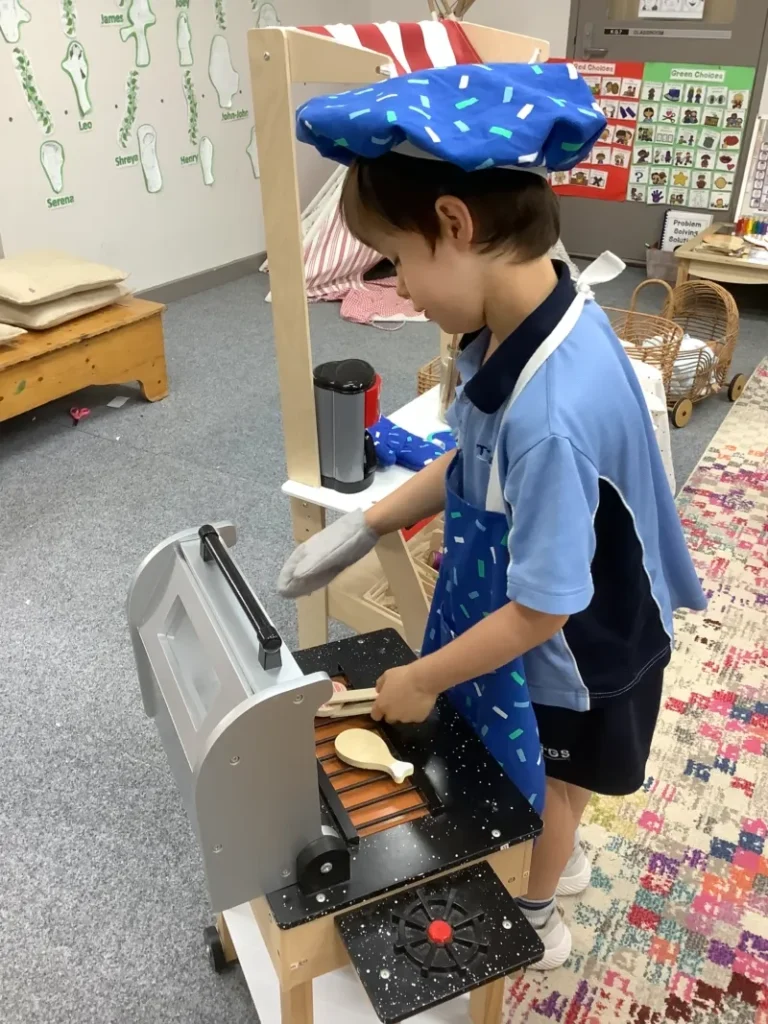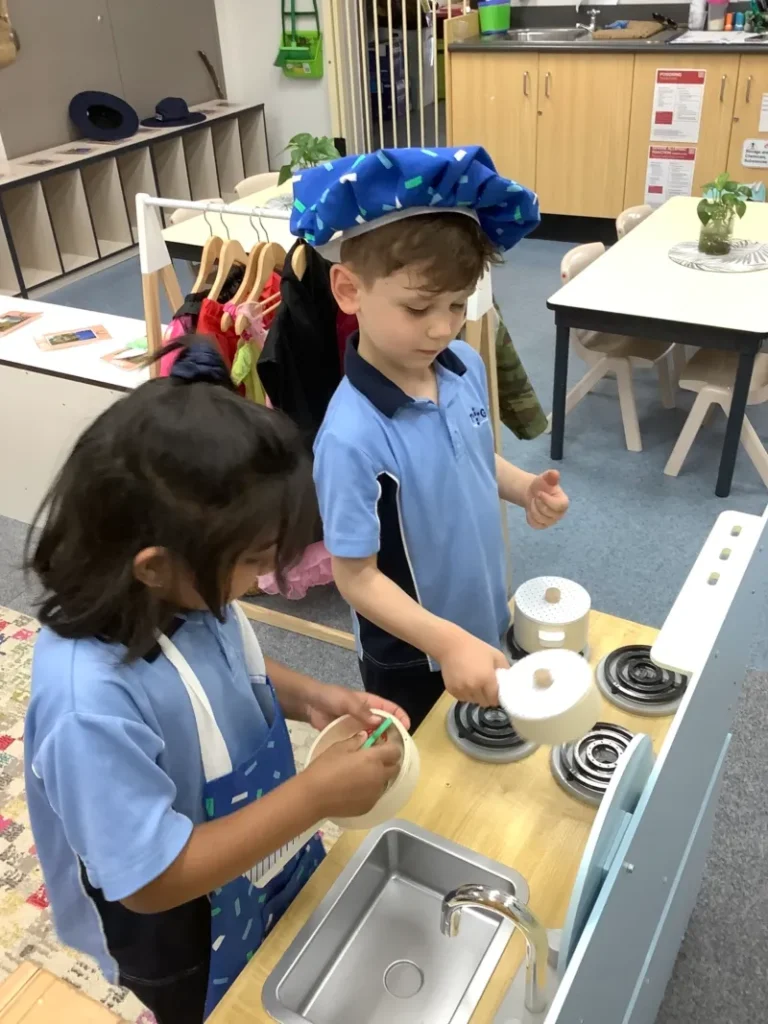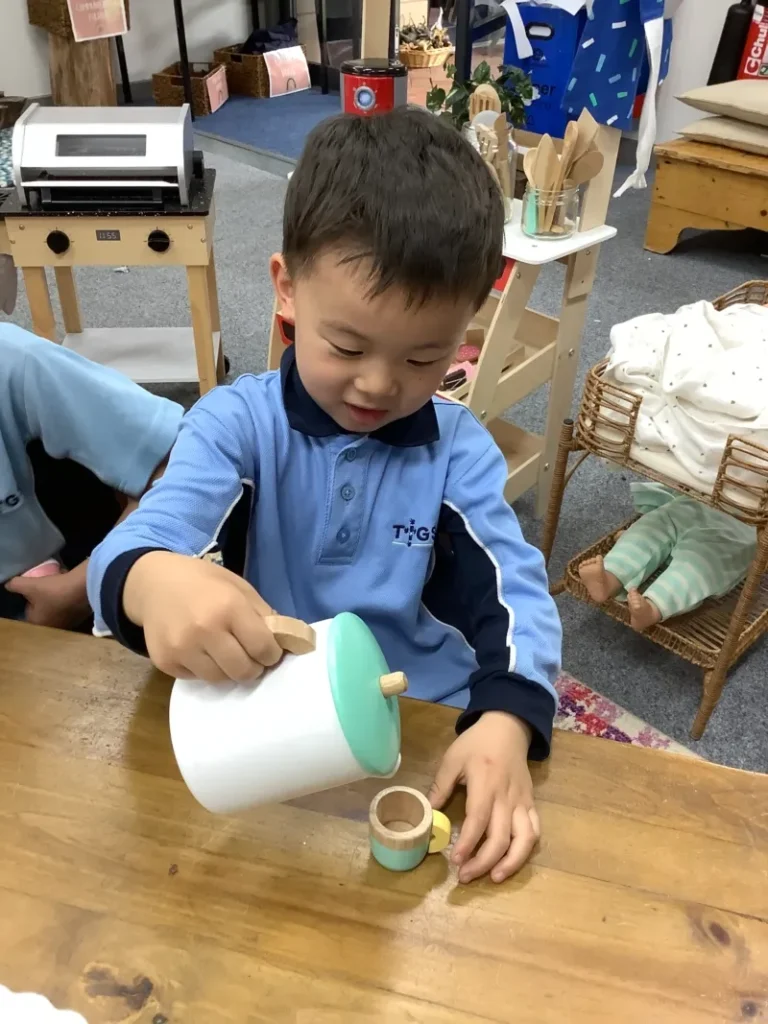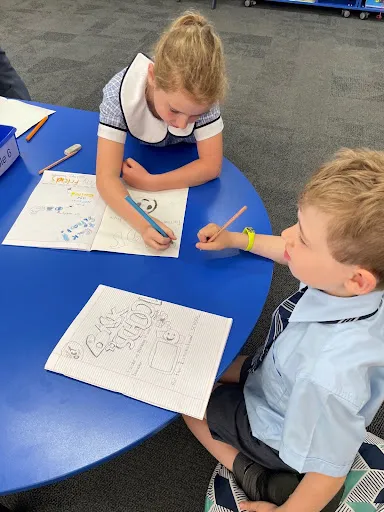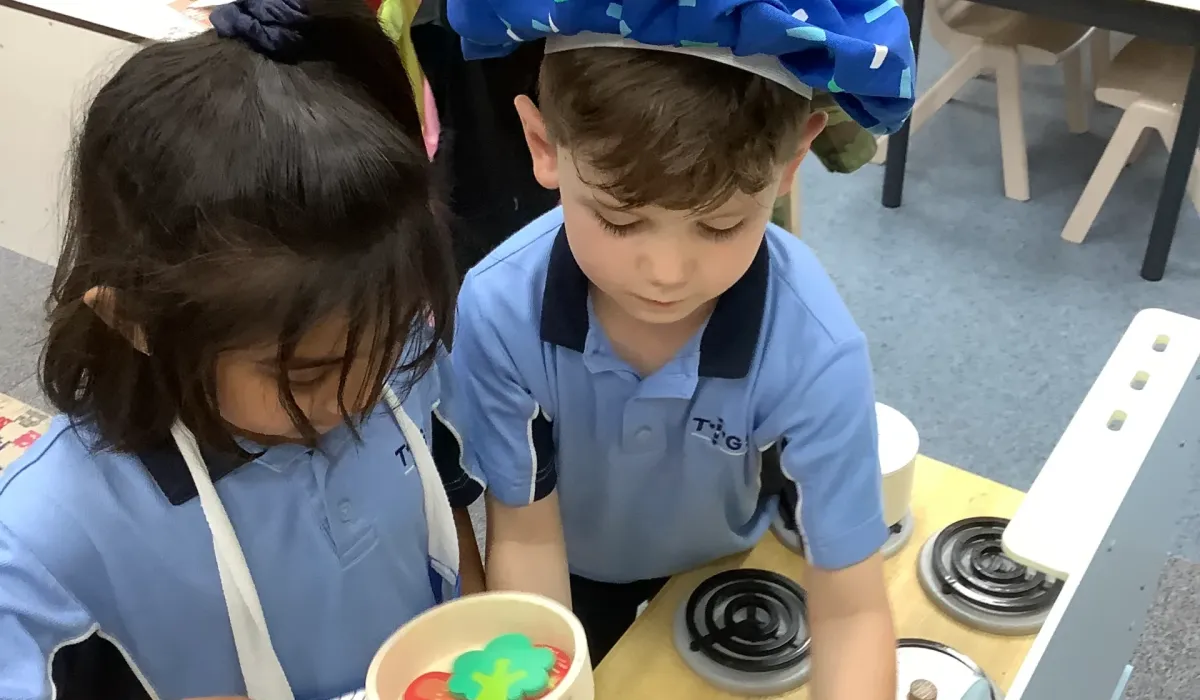
Play under the microscope!
How does play help my child to learn?
Learning and play go hand in hand. It is natural for young children to be curious about exploring the world. Having a natural curiosity about the world allows children the opportunity to show initiative, demonstrate their problem solving skills and develop persistence and resilience through play. You can help your child academically by engaging in play with them and exploring the world together.
Let’s take a closer look.
Ezra is 4 years old. She loves to pretend play where she dresses up in her dress-up clothes, adding jewellery and shoes. Ezra will then pretend to go shopping, care for her baby dolls, and cook dinner. It is through her pretend play that Ezra learns to think abstractly. When she holds a block in her hand and uses it to pretend to talk on the phone, she is using the block as a symbol for something else. That’s abstract thinking in action! And, since letters and numbers are abstract because they are symbols of what they represent, pretend play is one way a child develops their understanding of letters and numbers as they explore symbols in play.
Ezra’s parents have recognised that supporting her pretend activities keeps her engaged for 10 to 15 minutes at a time and sometimes even longer. They are excited to play and pretend right along with Ezra, asking her to do things such as “bake some cookies” or “go grocery shopping” or “talk on the phone.” Ezra is provided with resources such as paper, textas, pencils and pens, pictures of grocery items and catalogues, pretend food items, and a shopping trolley and basket, so that she can pretend to write grocery lists and gather groceries.
Ezra is encouraged to count how many items she has placed in her shopping trolley and basket. Ezra’s scribbles to make a list and letter-like shapes are acknowledged as her writing (which is just right for 4-year-olds). Ezra is offered guidance when the numbers get a little mixed up to encourage her to keep trying. As Ezra is gathering fruit and vegetables, she explores mathematical concepts such as one-to-one correspondence, matching, sorting, and classifying objects according to attributes. As Ezra engages in conversation and communicates and shares her ideas, she uses her receptive and expressive language skills. As Ezra stacks the items in the basket and they overflow, she develops her problem-solving skills and persistence as she tries again and again until she realises the shopping trolley will fit all the items.
Your interest, enthusiasm, open-ended questions and comments as you play alongside your child will help your child learn new skills, enhance other skills and build resilience as you explore the world together.
In the same way children play at home, TIGS Prep offers a world of play through exploration, adventure and opportunities to thrive academically.
So come on, let’s play!
